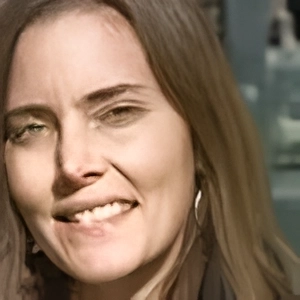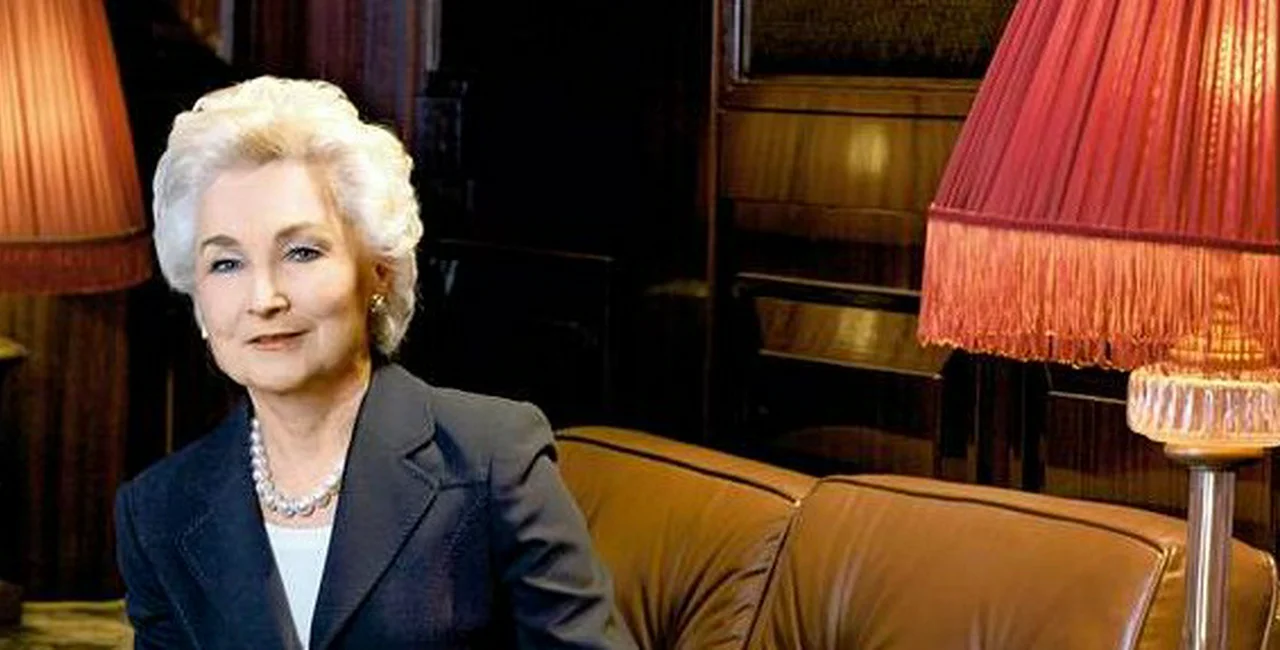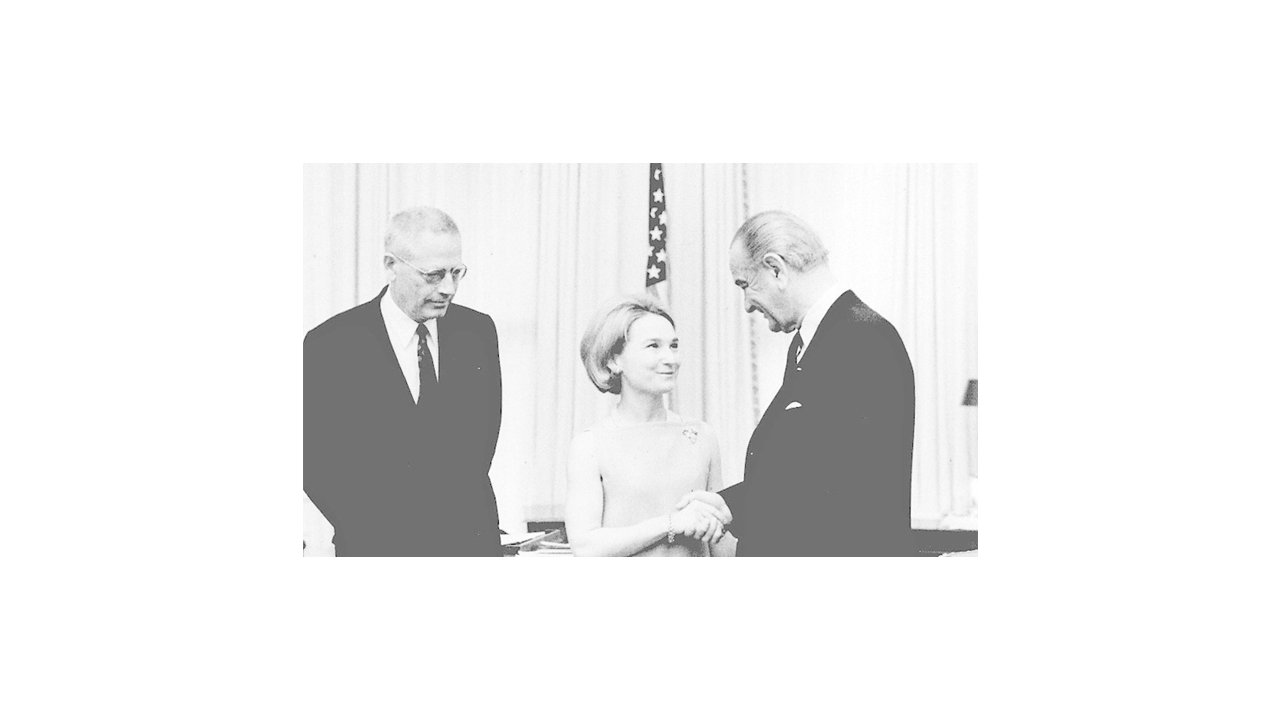A White House Special Assistant to five U.S. Presidents, Czech-American Eliška Hašková Coolidge is often referred to as the Czech Republic’s ‘First Lady of Etiquette’
For Eliška Hašková Coolidge – Czech by birth, American by fifty years of residence – “manners are the glue that bring people of different beliefs or persuasions together,” and children are the base on which good manners must be built. A White House Special Assistant through five U.S. Presidents, today Coolidge is often respectfully referred to as the “First Lady of Etiquette”.
Coolidge was born in Prague to a prominent Czech banking family. At age 8, after the communist takeover, she escaped along with her mother and brother to join her father in the U.S., where he was on a business trip since January 1948. After spending a year in France, she landed in the U.S. at age 9. (Her mother and brother settled in England with the man who eventually became Coolidge’s stepfather). Finding her footing in her new home – where she initially didn’t speak a word of English – was eased by the presence of Coolidge’s grandmother, who kept her Czech roots close at hand and instilled values and manners in her without which she says, “I never would have done what I did”.
Solidifying strong English skills, Coolidge began her career after graduating with honors from the Georgetown University School of Foreign Service as a Special Assistant in the White House – writing and editing for President John F. Kennedy. It was under Kennedy’s successor, Lyndon B. Johnson, that she established the Office of Presidential Messages, of which she served as Director and Special Assistant to the President for 18 years.
In 1981, when President Ronald Reagan came into office and decided to keep his Director of Presidential Messages from his tenure as Governor of California, Coolidge – with the help of then Vice President, George H.W. Bush – moved to the U.S Department of State. For the next nine years her roles included Special Assistant to the Secretary of the State, Congressional Relations Officer for the Latin American Bureau, Assistant Chief of Protocol of the U.S. and Alternate Delegate to the Organization of American States.
After an early retirement from the Federal Government, Coolidge made the decision to return to her native country. She first came back in 1991, and in 1993 ran a camp for young Americans who taught English to Czech children and worked in the Šumava National Park under the direction of the World Wildlife Fund (WWF). Her father, who was gravely ill, wished to live out his last years in his home country and in 1998 Coolidge returned to care for him and for restituted family property. Her daughter was then a sophomore in college and her twenty-four year marriage had come to an end.
Initially the transition was not easy. But with an optimism and resilience instilled in her by her parents (“My parents never moaned about what might have been, but equipped with education, integrity and good manners they turned to building a new life.”), and using the skills she had acquired through her professional and personal experience, Coolidge began teaching courses in social skills and business and diplomatic protocol.
“I promised my grandmother that I would do something to help Czech society return to First Republic values after the fall of communism,” she said.
Initially working with diplomats – teaching at the (now defunct) Diplomatic Academy, for the last 14 years Coolidge has been working with executives, managers, and interested private individuals to improve their social skills, image and style and to advance their success in “a highly competitive work environment”.
Coolidge also offers courses to the public. She takes from 12 to 14 people per course and holds the majority of the daylong sessions at the Mandarin Oriental Hotel, which she notes is a very appropriate venue especially for teaching dining etiquette. The course’s overall objective: “How to communicate effectively”, which is how Coolidge defines manners, “Manners are the ability to communicate, to listen and to show respect for others,” she says. “We have two ears and one mouth.” Giving further insight, Coolidge says she teaches the importance of appropriate dress and body language. “We in the Czech Republic seriously underestimate etiquette, manners, and appearance. We don’t realize that we’re shutting doors for ourselves in dealing with the outside world.”
Along with fulfilling her promise to her grandmother, Coolidge was inspired by the ideas of Thomas Jefferson, whom she quoted as having said, ‘Our young democracy may have the finest laws and the finest constitution, but where manners fail, so to do the laws and the constitution.’
Coolidge says, “The cornerstone of success in every society or organization is the trust that binds people together. The lack of the trust in the world is the biggest problem today and the underlying reason for our crisis. In the Czech Republic, trust was driven out by forty years of communism and it is difficult to build on a foundation that is lacking its cornerstone.”
“To change a mindset and restore trust is not an overnight event. It is a process. In an effort to give our children what we ourselves did not have, we often forget to give them what we had. We have to start at the beginning. To build a firm base, we must start at its roots…in elementary schools.” In addition to her adult courses, Coolidge offers social etiquette and ethics courses to children from the age of 6 to 12 (and there is soon to be a course for teenagers). The three-hour session includes principles of social and ethical behavior, respect for adults and peers, introductions and greetings, appearance, body language and proper dining etiquette, which is immediately put into practice.
Along with planning her first course for teenagers this summer – about which she expressed some justified apprehension – Coolidge’s most current project is also one involving children. In collaboration with the Czech Ministry of Education, where Coolidge is a member of an advisory group on ethics in elementary schools, and the
American Chamber of Commerce, where she is in the Leadership Council, she is responsible for initiating a project called “Adopt a School for Ethics in our Children and Trust in our Society” (ASET), through which she hopes to bring ethics into elementary schools. “The project”, she emphasizes, “could not possibly have taken off without the teamwork of many talented people at the Department of Education, at the American Chamber of Commerce and at the non-profit organization Etická Výchova, which are partners in the project.” She explains, “It is not about having a subject called ethics. It is about a school environment that breathes ethics,” she says. “We want teachers, parents and the children together to create an ethical environment.”
Along with her numerous efforts and projects, Coolidge, who now lives in Prague and Šumava and keeps an apartment in Washington D.C., wrote a best selling book –“Pět Amerických Prezidentů, Česká Babička a Já (Five U.S. Presidents, My Czech Grandmother and I)” – published in 2005, which is about to be published again as it currently out of print. When asked whether she feels more Czech or American, she refers to a passage from the book: “I am grateful to the Czech Republic for giving me life and to the United States for letting me live it in freedom.” She notes that she is a strong patriot of both countries.
As a send off, I ask her to offer a few etiquette tips. “Don’t see yourself only through your eyes, but also through the eyes of others. When you meet people, try to find out about them, to bring them out. Respect and honor their customs and cultures. And be sure you represent yours with the dignity it deserves.”
Related articles












 Reading time: 6 minutes
Reading time: 6 minutes 

 English
(Advanced)
English
(Advanced)

























